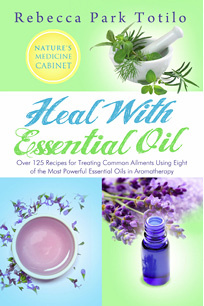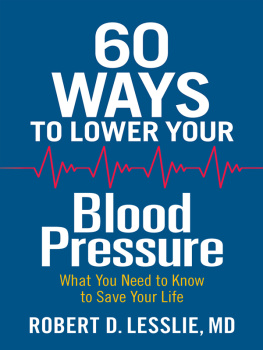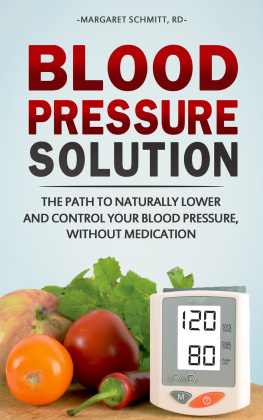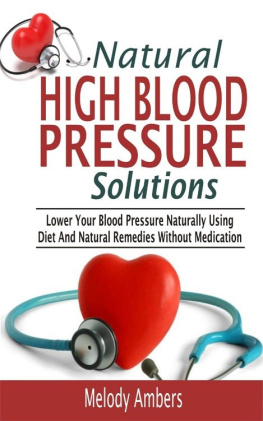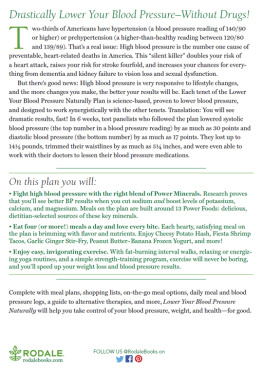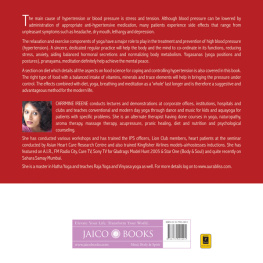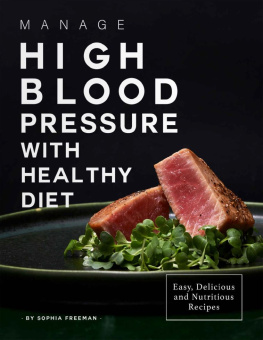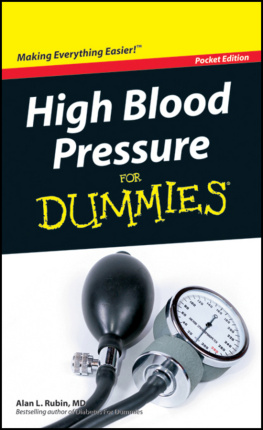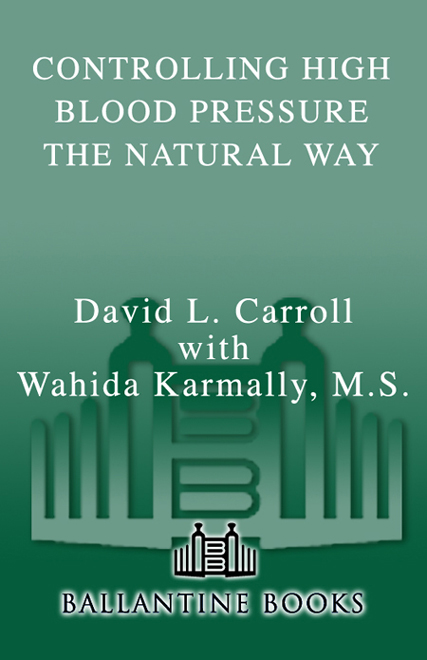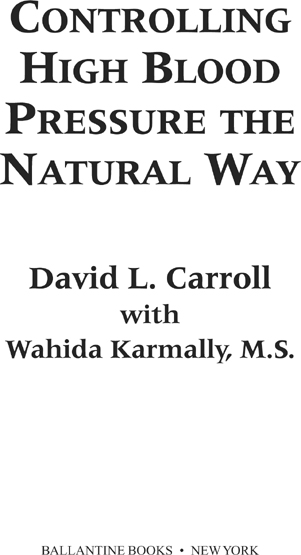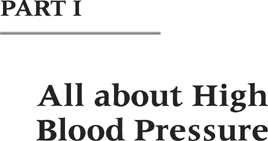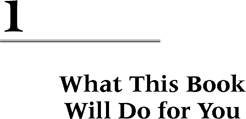In this book we will introduce you to a number of easy-to-apply, nonmedical lifestyle improvements that you can start using right away, this very day, to gain control of your blood pressure. If your blood pressure is currently borderline high, and if you haven't yet gone on medication, you may find that by faithfully following the regimens laid out in this book, your problem will resolve itself on its own. If, on the other hand, you're already taking hypertensive medications, these techniques will serve as a powerful supplement to conventional medical treatments, and may even allow you to take smaller doses.
Books published by The Random House Publishing Group are available at quantity discounts on bulk purchases for premium, educational, fund-raising, and special sales use. For details, please call 1-800-733-3000.
High Blood Pressure:
How Much Should It Worry You?
If you have hypertensionhigh blood pressureand if you've discussed this matter with a knowledgeable health care professional, probably the first thing you were told is that this all-too-common disorder is known as the silent killer.
Silent? Killer?
Why?
Because in all but the most serious cases high blood pressure produces no conspicuous symptoms and causes no measurable distress. Indeed, hypertension can work its mischief in a person for years, decades even, without detection. People can go about their daily activities, working, playing, sleeping, eating, feeling healthy and trim the entire time, and never once suspect that a problem lurks.
Until one day it's too late.
Now, all this is true; there is no doubt about it. Elevated blood pressure does its dirty work in the dark, leaving no trace until the damage is done.
At the same time, there is nothing really silent about hypertension if you know what to look for.
And the ailment itself is a killer only if left untreated.
In fact, high blood pressure is actually one of the easiest of all ailments to detect, diagnose, and control, and learning whether or not you suffer from it could not be easier. All you need to do is check your blood pressure on a regular basis, and all that's required to accomplish this feat is a blood pressure cuff, your own or your doctor's. Three or four carefully monitored readings taken over the course of a day or two will give you a fair idea of where things stand.
As to hypertension's being a killer, this is undoubtedly true. Some experts label it the number one cause of death in the United States. High blood pressure can contribute to heart disease, hardening of the arteries, stroke, kidney damage, and several other nasty ailments, all of which are on the list of prominent killers. But only if you allow it to do so.
For the truth is that, of the countless ailments that rack the human machine, high blood pressure is one of the easiest to prevent, and one of the most responsive to treatment.
What's more, it is an ailment that for many people a majority perhapscan be kept partially or even fully under control simply by modifying one's lifestyle. The only step you must take to set the healing wheels in motion is to learn what these lifestyle modifications are, and to apply them to the fullest.
If you do this, if you learn about the many natural options that are currently available to you for treating hypertensionand in this book we will tell you about themchances are strong that your blood pressure will remain normal and under control for the rest of your natural life.
How Prone Are You to
High Blood Pressure?
Who gets hypertension?
A lot of people.
In the United States alone approximately forty-five to fifty million men and women suffer from the silent killer. That's 24 percent of the adult population.
Among this group, roughly 75 percent have been officially diagnosed with the disease and 25 percent have not. That means that right this moment approximately eleven million people in the United States are cardiovascular casualties just waiting to happen.
Who gets the disease?
Since our circulatory apparatus tends to become less efficient as the years pass, older people are more likely to experience hypertension than young people. With each passing decade of the life cycle, a person's blood pressure creeps up a few points. More than 60 percent of people in their sixties have blood pressures above the normal range. Thus, while 120 over 80 may be a normal reading for a person under twenty years of age, 140 over 90 is more typical of someone in his or her seventies. With age comes elevated blood pressure. This is just part of the natural course of things, at least in the Western world.
What about heredity?
Individuals with a family history of hypertension are definitely more susceptible than those without. The degree of vulnerability depends on whether one or both parents suffer from the ailment.
If, for example, one of your parents has hypertension, your statistical chances of acquiring the disease are around fifty-fifty. If both parents have it, this ups the odds considerably.
Do not, however, let these figures make you fatalistic. Nothing is written in stone in these matters, and there are plenty of people with family histories full of hypertension who are free of the disease. Especially those who take proper care of themselves. Some researchers believe that we inherit a basic predisposition to high blood pressure, but that specific risk factors, such as obesity or lack of exercise, are needed to set it off.
What part does race play in this picture? African Americans of every age group have a proportionately higher chance of getting hypertension than whites. According to the National Institutes of Health, 50 percent of black people over the age of sixty-five in the United States suffer from hypertension, as opposed to 40 percent of white people in the same age category.
Genderwise, for people under the age of fifty high blood pressure is more apt to occur among men than women. After menopause, or more specifically after age fifty-five to sixty, women become more likely candidates than men. Among both sexes there is a gradual rise in blood pressure as the aging process unfolds.
Natural Blood Pressure Control: What
Makes It Such an Urgent Health Option?
For many years hypertension was looked upon as a purely physiological disease. Blood pressure levels, doctors observed, are established by a number of complex chemical processes that take place in our blood every moment of the day. And so doctors treated the disease in an appropriately physical way, using diuretics and synthesized chemical medicines to keep pressures normalized.





